Northern Cape poised to become South Africa’s industrial and renewable energy powerhouse
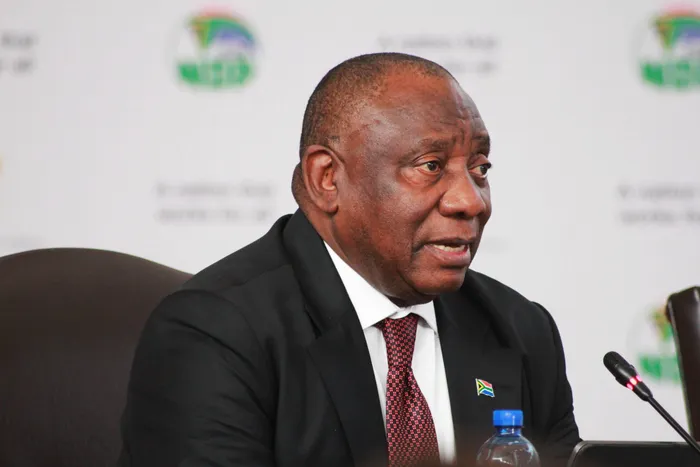
President Cyril Ramaphosa
Image: Sandi Kwon Hoo / DFA
South African President Cyril Ramaphosa identified the Northern Cape as becoming the “heartbeat of the economy” through utilising its rich renewable energy resources.
Several ministers, deputy ministers, MECs, executive mayors and officials were part of the cabinet oversight visit that took place at Sol Plaatje University on Friday, to assess service delivery in the province.
The president noted that the province was at the forefront of the clean energy revolution including solar and green hydrogen projects.
“The Northern Cape is an economic pioneer and a frontier of innovation and has latent potential. The province’s Green Hydrogen Masterplan is ambitious in both scope and potential benefits – not just for the Northern Cape but for the national economy, for the South African Development Community, for the continent and globally.”
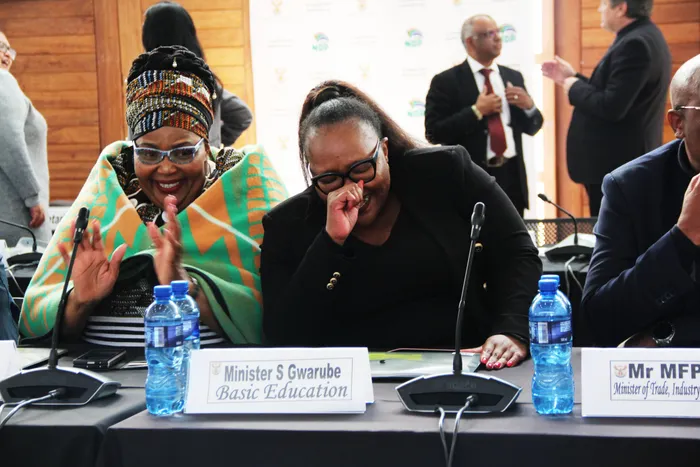
Minister of Water and Sanitation Pemmy Majodina (left) and the Minister of Basic Education Siviwe Gwarube
Image: Sandi Kwon Hoo / DFA
He indicated that with the vision of making South Africa the leader in the renewable energy revolution, the Northern Cape could be turned into an industrial hub.
“This is supported by traditional industries like mining, but is being expanded through special economic zone development, industrial park development and major infrastructure developments, notably in port and rail,” Ramaphosa said.
He pointed out that persistent challenges in the province included a high poverty and unemployment rate, particularly among the youth.
“The National Treasury’s 2024 provincial socio-economic review points to a drop in the number of households with access to basic services like water," the president noted.
“Fiscal constraints are holding back a number of projects particularly at a municipal level, including for disaster response, asbestos eradication, land restitution, rural electrification and public housing.”
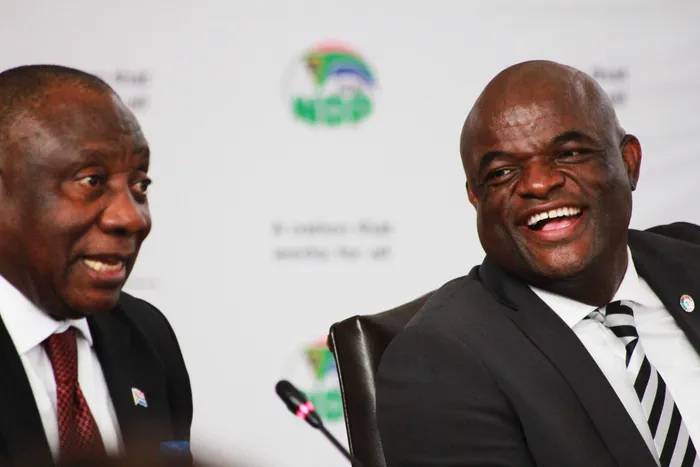
SA President Cyril Ramaphosa (left) and the Northern Cape Premier Dr Zamani Saul
Image: Sandi Kwon Hoo / DFA
Ramaphosa stated that projects were initiated and budgeted for at national level without due consideration to the realities of implementation on the ground, or even whether it suited the needs of the community.
“This has contributed towards a widening trust deficit between government and communities when these ventures fail to take flight or encounter implementation challenges.
“Structured engagements between the national and provincial executives are designed to narrow and ultimately close these gaps. They are meant to help us work together more efficiently, to resolve challenges together and to plan smarter.”
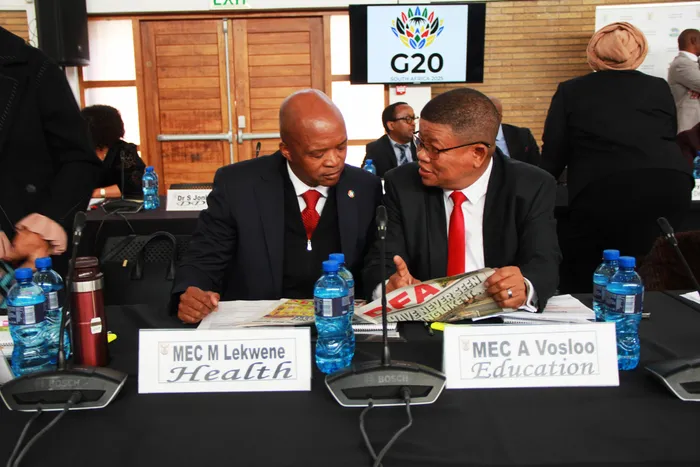
The MEC for the Department of Health Maruping Lekwene (left) and MEC for the Department of Education Abraham Vosloo
Image: Sandi Kwon Hoo / DFA
He highlighted the need to find ways to support high impact infrastructure projects such as the Northern Cape Industrial Corridor, the R1 billion housing programme and the Kimberley Big Hole precinct.
“We will also need to find creative funding mechanisms for projects like the Boegoebaai harbour. We need an urgent relook at the current delivery model to enable regulatory approval and investment activation.
“Integrated planning between national, provincial and local government must involve state-owned enterprises as important stakeholders with significant capabilities.”
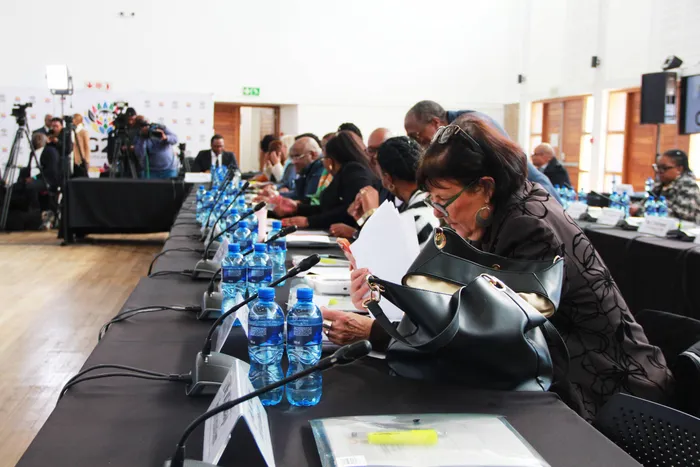
A delegation of cabinet ministers attended the oversight visit to the Northern Cape
Image: Sandi Kwon Hoo / DFA
Ramaphosa added that he would assess the ability of the province to respond to climate change and natural disasters, as well as boost its popularity as a tourist destination.
“Another challenge is the increasing municipal debt; what measures are in place to improve revenue collection and how the province can best utilise key tourism attractions.”
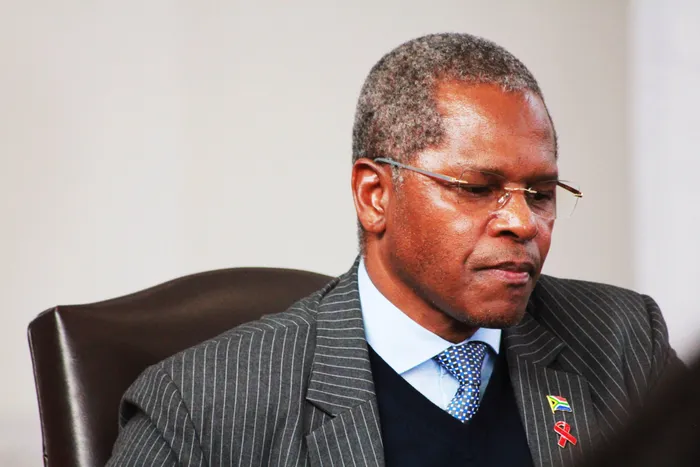
Minister of Cogta Velenkosini Hlabisa,
Image: Sandi Kwon Hoo / DFA
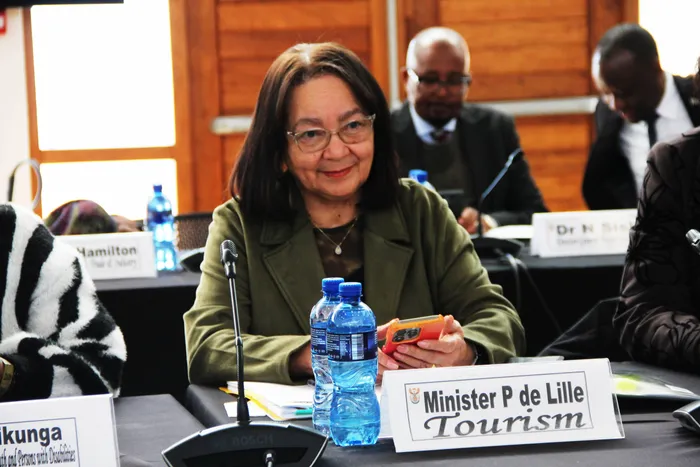
Minster of Tourism Patricia de Lille
Image: Sandi Kwon Hoo / DFA